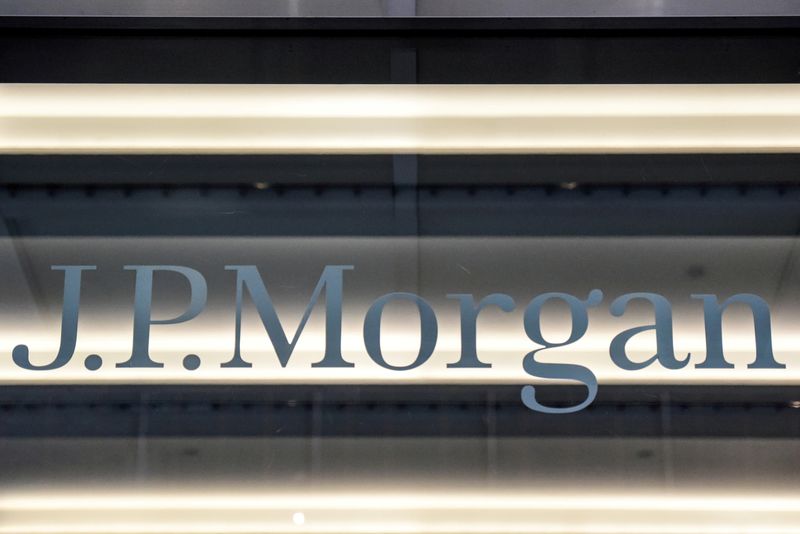By Saqib Iqbal Ahmed
(Reuters) -A nearly $15 billion JP Morgan (NYSE:JPM) fund is expected to reset its options positions on Friday, potentially adding to equity volatility at the end of a strong quarter for U.S. stocks.
Analysts have in the past pointed to the JPMorgan Hedged Equity Fund’s quarterly reset roiling markets, and see it as a source of potential volatility during Friday's session.
WHAT IS THE JP MORGAN HEDGED EQUITY FUND?
The JPMorgan Hedged Equity Fund holds a basket of S&P 500 stocks along with options on the benchmark index and resets hedges once a quarter. The fund, which had about $14.71 billion in assets as of March 29, aims to let investors benefit from equity market gains while limiting their exposure to declines.
For the year, the fund was up 5.71% through March 29, compared with a 5.35% rise for the S&P 500 Total return Index.
The fund's assets ballooned in recent years, as investors sought protection from the sort of wild swings that rocked markets in the wake of the COVID-19 outbreak in March 2020.
Its holdings include some of the market's biggest names, such as Apple Inc (NASDAQ:AAPL), Microsoft Corp (NASDAQ:MSFT) and Amazon.com Inc (NASDAQ:AMZN).
HOW DOES THE FUND USE OPTIONS?
The fund uses an options strategy that seeks to protect investors if the S&P 500 falls between 5% and 20%, while allowing them to take advantage of any market gains in the average range of 3.5-5.5%. On Dec. 30, the refresh of the fund's options positions involved about 125,000 S&P 500 options contracts in all, including S&P 500 puts at strike prices $3,060 and $3,600 and calls at $4,065, all for the March 31 expiry.
HOW CAN THIS AFFECT THE BROADER MARKET?
Options dealers - typically big financial institutions that facilitate trading but seek to remain market-neutral - take the other side of the fund's options trades.
To minimize their own risk, they typically buy or sell stock futures, depending on the direction of the market's move. Such trading related to dealer hedging has the potential to influence the broader market, especially if done in size, as is the case for the JPM trade.
While the trade is well known and anticipated by most market participants, it can exacerbate daily stock market moves, especially during times of poor market liquidity, analysts say.
